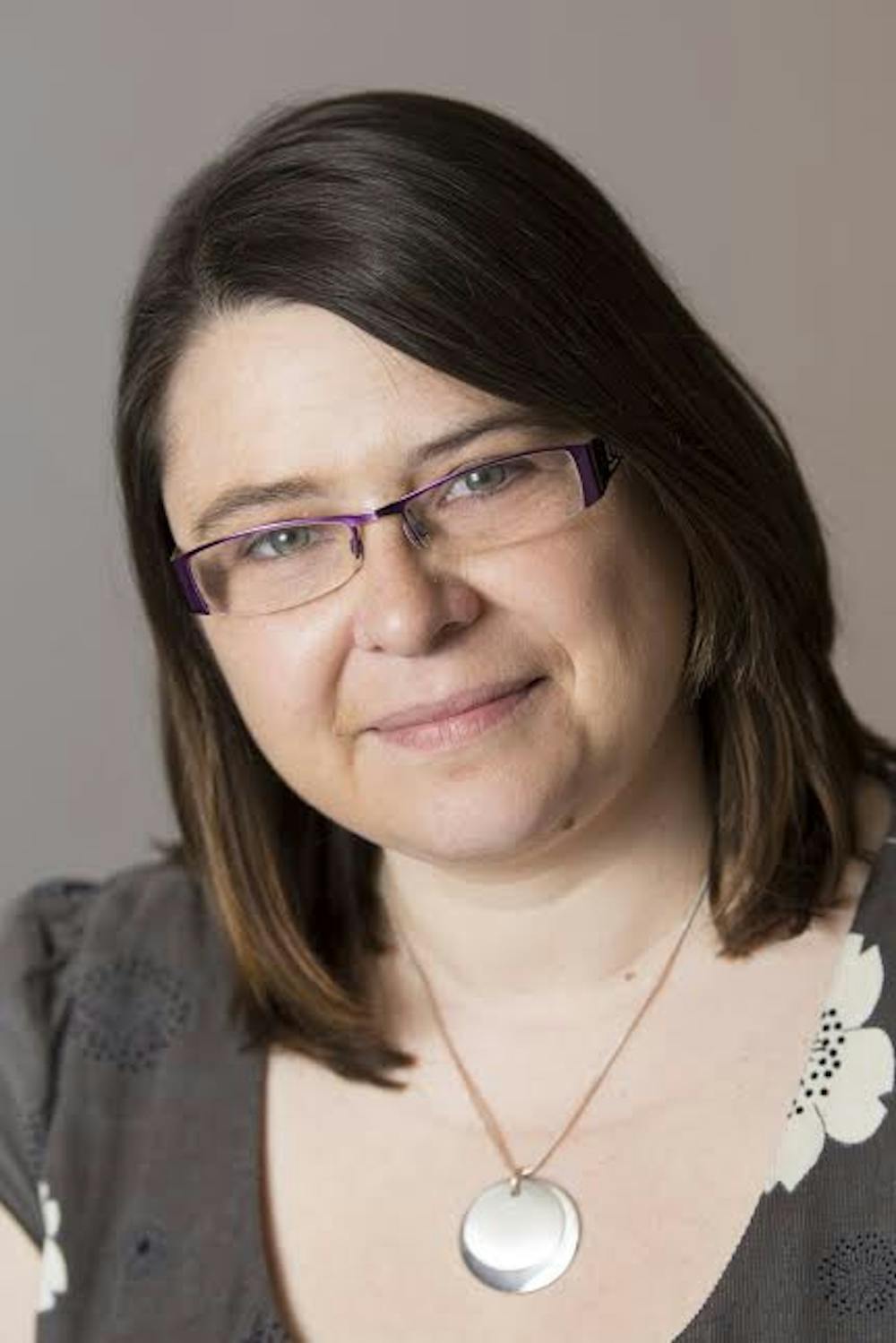Claire Handscombe, a 2015 graduate from the MFA Creative Writing Program, is crowdfunding her first novel with London-based publisher Unbound.
Handscombe’s novel, “Unscripted,” is a realistic fiction book following the relationship between Libby, an aspiring British novelist, and Thom Cassidy, an actor whom Libby is fixated upon.
Handscombe began writing as a child while growing up in Belgium. Throughout those years, she associated her creative work with her first language, French. When she was 12, her family moved to the United Kingdom. As a result, she became less focused on writing.
“Basically I stopped writing because it wasn’t something I associated with English,” Handscombe said.
She returned to writing years later after seeing the potential of the English language while watching television.
“I started watching ‘The West Wing’ when I was maybe 30 and the language on that show … reawakened in me everything I loved about writing and reading and language,” Handscombe said.
Soon after, she began to take writing seriously. She read books on the craft of writing and considered enrolling in an MFA program. Her passion for “The West Wing” also prompted an interest in D.C. In 2012, she began pursuing her MFA in Creative Writing at American University.
“On a romantic level it appealed to me,” Handscombe said. “D.C., for me, is the perfect medium. It has all the kind of cultural things that I love about capital cities. … It also is just a bit more chilled out than New York or London.”
Since moving to the area, Handscombe has written about “The West Wing” for outlets such as the Washington Post. In 2016, she edited “Walk With Us: How the West Wing Changed Our Lives,” an anthology of essays about the show. She is currently a contributor for Book Riot, where she primarily writes about British literature.
Handscombe has written five novels, but “Unscripted” will hopefully be the first to be published.
Her publisher is Unbound, which describes itself as a “crowdfunding publisher” in the vein of Kickstarter. The publishing costs of authors’ works are funded by readers rather than the publisher itself. An author will pitch a draft to a group of editors who will then determine if it is viable enough for a crowdfunding campaign. Once a campaign is launched, readers who are interested in the book can donate money to cover the publishing costs. Unbound’s campaigns ensure that every book they publish will be profitable.
The campaign for “Unscripted” is currently live on Unbound. Handscombe ultimately opted to publish with the site after a few near-missed book deals with traditional publishing houses. If the campaign raises enough money, Unbound will collaborate with Handscombe to publish and distribute “Unscripted.”
Handscombe sees Unbound as an experiment within a struggling industry. Unbound does not need to worry about profit margins because the publishing cost has already been paid for through presales.
“Amazon is squeezing publishers, and one of their [the publishers’] responses is: ‘We have to publish stuff we know we’ll make profit on,’” Handscombe said. “The impression I get with Unbound is that it’s a lot more collaborative.”
Handscombe wrote ‘Unscripted” by hand over the course of a couple of summers before polishing it during her last semester at AU in 2015 and submitting it as her MFA thesis.
“I would sit down most days … and I would tell myself, ‘I have to write 500 words,’” Handscombe said.
With French as her first language, Handscombe said she can draw from a separate pool of imagery than other English writers. She provided an example.
“In the UK, we say ‘it’s raining cats and dogs’ when it’s raining a lot. In French, you say ‘it’s raining ropes,’ as in it looks like there are ropes of rain falling down,” Handscombe said. “Saying that in French would be a cliché, but if you were to use that imagery in English that might be really beautiful and really fresh.”
Handscombe’s advice to students interested in creative writing is to simply start. In recent years, Handscombe has tried to return to her writing roots by reading more fiction in French. The language, she said, “definitely does bring a new sensibility and a new way of looking at things.”
“I think it’s very easy to think of yourself as a writer, but until you’re actually writing, you’re not really a writer,” Handscombe said.
life@theeagleonline.com





